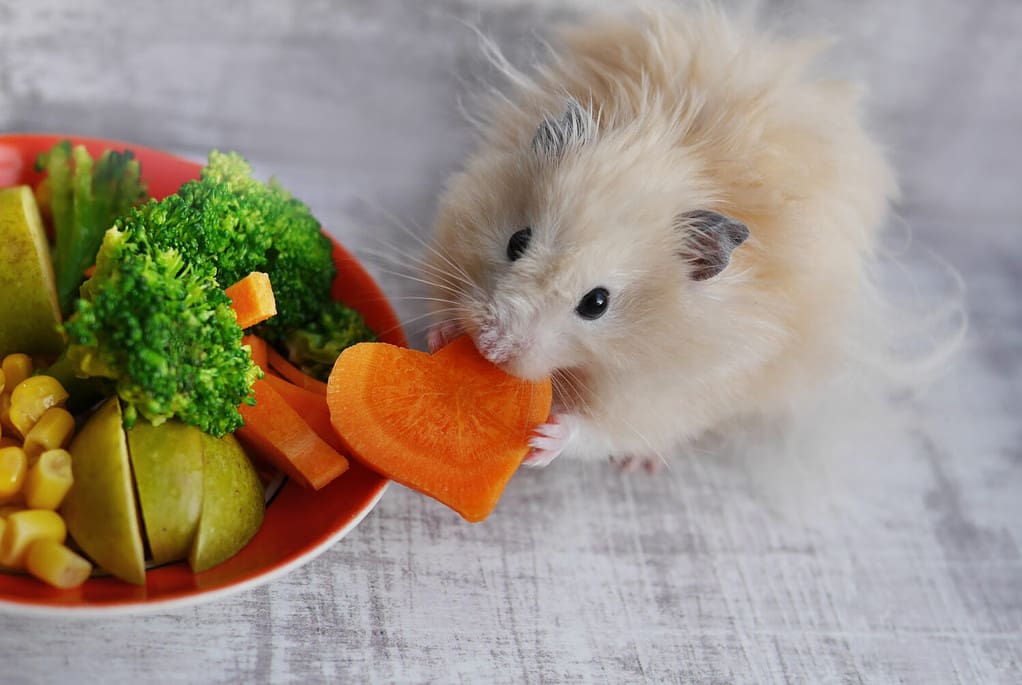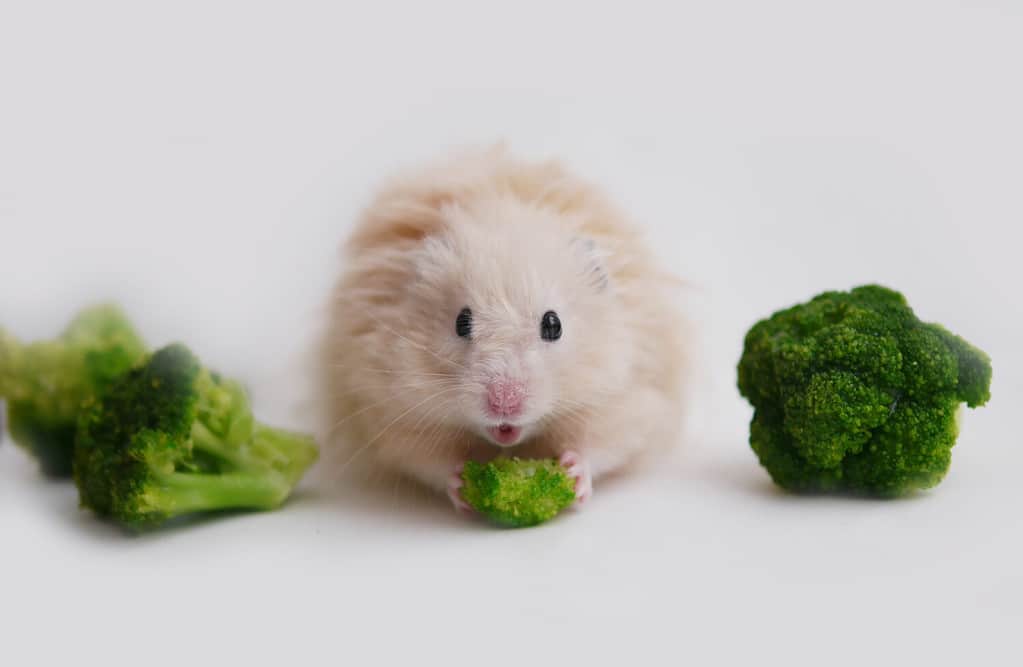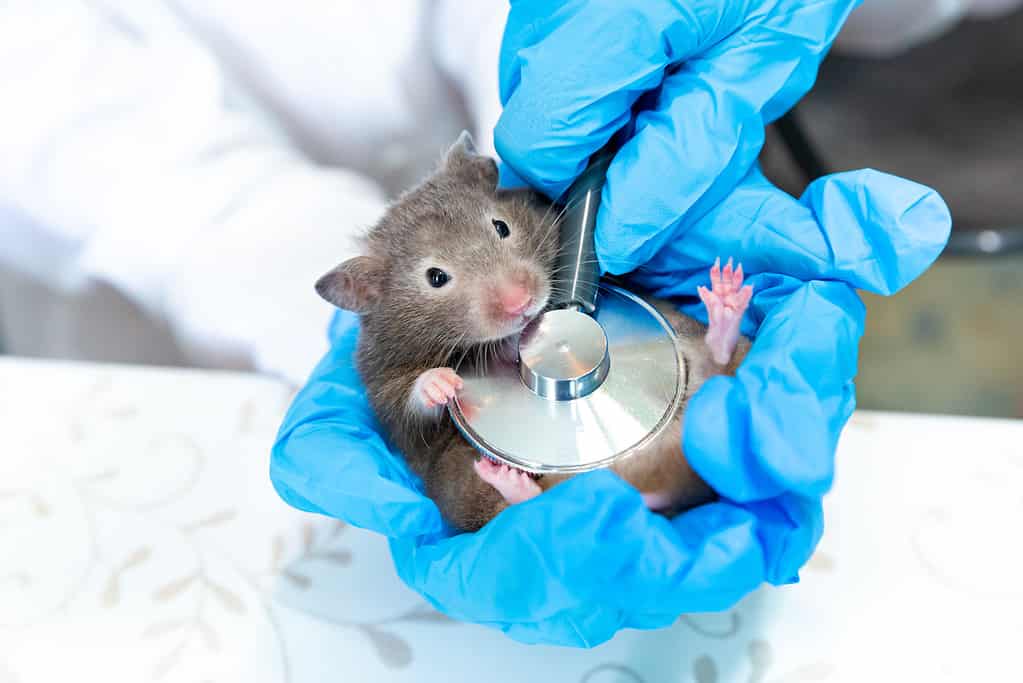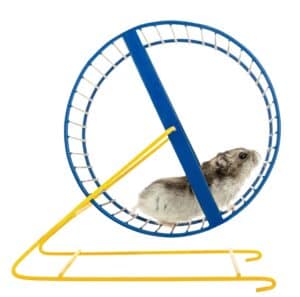Hamsters are small, fuzzy, adorable rodents that everyone loves. With any pet comes unexpected situations and ways in which the pet will send you into a spiraling rabbit hole of worry. If you are ever concerned about your hamster or any pet, it is always best to consult a veterinarian who specializes in the type of pet. Hamsters can be worrisome at times. It is important to remember that domesticated hamsters are descendants of wild animals, and certain behavioral traits are inherited from those ancestors who were found in Europe, the Middle East, and Asia. Hamsters are food hoarders because it’s in their nature to plan for the worst. Let’s take a look at how long your furry friend can go without eating and a few other tips to keep them alive for a long time.
How Long Can A Hamster Go Without Eating?

Always make sure to feed your hamster a nutritious, well-rounded diet.
©tanya_morozz/Shutterstock.com
Hamsters can be finicky when it comes to food, just like any pet. What’s going on when your fuzzy friend decides to stop eating? Hamsters are descendants of wild animals, and in the wild, they needed to store food for times when food would not be available. They also stock up on food when they’re out, much like we do with groceries. We do it so we won’t have to go out daily and get more food. In some ways, that is also true for hamsters. They choose to stock up on food because of the threat of predators. If they stay in their deep tunnels and out of sight, they tend to live longer.
Domesticated hamsters still have the same instincts as their wild ancestors but little reason to worry about running out of food or being killed by predators. They spend time thinking ahead and hoping that they do not run out, but they’re set just in case. Depending on depending on many details and circumstances, your hamster should be okay to go three or four days without food or water. If your hamster is elderly and thin, they likely cannot go that long. Most pet hamsters retain a chunky physique because they eat and drink well. If you notice your hamster rubbing its mouth a lot, it may have a dental issue and needs to go to the vet immediately. Hamsters can break their teeth by chewing on their enclosures or on their water bottles. It’s best to use a dish for water since it is fresher and will not break their teeth.
Some Tips to Keep Your Hamster Alive

Hamsters are not the most difficult pets to care for but do require daily food and water.
©tanya_morozz/Shutterstock.com
If you are planning a vacation, find someone to hamster-sit for you. The sitter wouldn’t need to do much; just switch out water every day or two and make sure your hamster has food daily. It’s much safer to do this than to assume your hamster will be fine without you. If anything were to happen to injure your hamster or create a potentially deadly situation, it would be best to have someone making sure your little buddy is doing just fine. If anything were to happen to you that would delay your arrival home, your hamster would be in good hands, and it would be one huge stress reliever. So, if anything did happen to harm your hamster, the sitter would be able to tell you about it and take it to a vet. Better to be safe than sorry!
Additional Ways to Keep Your Hamster Happy, Healthy, and Alive

Hamsters have
short lives
, so it’s best to keep those years happy!
©Natalia Duryagina/ via Getty Images
- Make sure to get an appropriately sized wheel for your hamster. A wheel that is too big is fine, but one that is too small will hurt their backs. These are creatures that run for miles every night in the wild. Syrian hamsters need 10 – 12 inch diameter wheels.
- Make sure your hamster always has plenty of healthy chewing choices. Their teeth grow constantly, and if they stay too long, they will inhibit the hamster from eating and could break.
- Get the largest hamster enclosure available. They really enjoy lots of space to run, play, and make food stashes. The colorful hamster cages sold at chain pet stores are not good for Syrian hamsters. They cannot safely fit through the tunnels and could become stuck. The cages are also extremely small. Instead, look online or check out some DIY hamster cages.
- Never use cedar chips as a cage liner. They might smell nice to us but are extremely harmful to small animals, and many develop breathing difficulties that quickly turn into pneumonia and kill them. Look for shredded paper bedding without additives. It costs a bit more but goes a very long way! Plus, it absorbs urine and other smells. Hamsters love to dig in it!
- Get your hamster a water dish made out of metal or stone so they cannot chew it up. Small animals, like hamsters and hedgehogs, have poor eyesight and tend to bump into water bottle nozzles. They can easily break their teeth and may stop eating. Plus, it’s easy to remember to change your hamster’s water when it’s in a highly accessible and easily cleaned dish. Lots of bacteria can develop in plastic or glass water bottles.
- Hamsters are not social animals by nature. Never force one to come out of their comfort zone. They can become terrified easily and will jump and possibly sustain fatal injuries in the fall. If you want a social pet who will gladly come out of their comfort zone for quality time, adopt a rat.
The photo featured at the top of this post is © Elena van den Akker/ via Getty Images
Thank you for reading! Have some feedback for us? Contact the AZ Animals editorial team.







